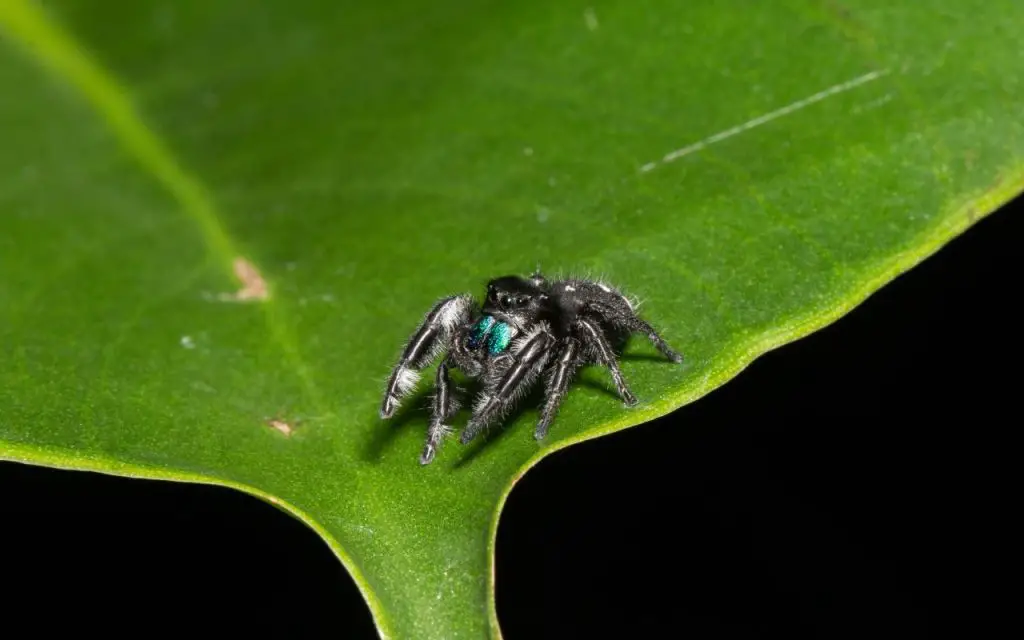Spiders, often misunderstood as simple creatures, possess a surprising level of intelligence that continues to astonish scientists worldwide. They’re not just passive predators but highly evolved beings capable of complex behaviors. As we dive deeper into their world, we uncover fascinating facts about their cognitive abilities and problem-solving skills.
When you think of spiders, intelligence might not be the first thing that comes to mind. However, recent studies have revealed that these eight-legged creatures exhibit remarkable cognitive abilities. From building intricate webs to devising clever hunting strategies, spiders demonstrate a level of intelligence that challenges our preconceived notions. Let’s take a closer look at what makes these tiny creatures so extraordinary.
This article aims to explore the fascinating world of spider intelligence, shedding light on how smart these creatures truly are. By examining their behaviors, cognitive processes, and evolutionary adaptations, we’ll uncover the hidden brilliance behind these often-feared arachnids. So, buckle up and get ready to dive into the incredible world of spider smarts.
Read also:Doja Cat The Queen Of Modern Pop And Hiphop
Table of Contents
- Introduction to Spider Intelligence
- Biological Background of Spiders
- The Art of Web Building
- Innovative Hunting Strategies
- Social Behavior in Spiders
- Learning Ability and Memory
- Problem-Solving Skills
- Neurological Aspects of Spider Intelligence
- Comparison to Other Animals
- Scientific Research on Spider Intelligence
- Conclusion
Introduction to Spider Intelligence
Spiders are often associated with fear and discomfort, but their intelligence is a topic worth exploring. How smart are spiders? This question has intrigued scientists for years, leading to groundbreaking discoveries about their cognitive abilities. It’s time to rethink what we know—or think we know—about these fascinating creatures.
While spiders may not possess the same level of intelligence as mammals or birds, their unique adaptations allow them to thrive in diverse environments. Their problem-solving skills, memory, and learning capabilities make them one of the most fascinating creatures in the animal kingdom. Whether you’re a spider enthusiast or just curious, this section will set the stage for a deeper exploration of their cognitive abilities.
Biological Background of Spiders
Understanding the Anatomy of Spiders
Before we dive into how smart spiders are, it’s essential to understand their biological makeup. Spiders belong to the class Arachnida and are characterized by their eight legs and two main body parts: the cephalothorax and abdomen. Their anatomy plays a crucial role in their intelligence and survival strategies.
Let’s break it down: spiders have eight legs for efficient movement, specialized silk glands for web construction, and highly developed sensory organs that allow them to detect even the slightest vibrations. These features are not just random adaptations; they’re key to their success in the wild. Their anatomy is a marvel of evolution, perfectly suited for their unique lifestyle.
- Eight legs for efficient movement
- Specialized silk glands for web construction
- Highly developed sensory organs
Evolutionary Adaptations
Spiders have evolved over millions of years, developing sophisticated mechanisms for survival. These adaptations include web-building techniques, hunting strategies, and even social behaviors in certain species. Their ability to adapt to changing environments is a testament to their intelligence and resilience.
For instance, some spiders can adjust their web designs based on environmental factors like wind patterns and prey availability. This adaptability highlights their cognitive flexibility and ability to learn from experience. It’s not just about survival; it’s about thriving in a world full of challenges.
Read also:Unlock The Power Of Remoteiot Vpc Ssh Download Free Your Ultimate Guide
The Art of Web Building
One of the most impressive displays of spider intelligence is their ability to construct intricate webs. These structures are not only functional but also demonstrate the spider's problem-solving skills and spatial awareness. Imagine being able to build a perfectly balanced structure in the dark without any tools—now that’s impressive!
Research has shown that spiders can adjust their web designs based on environmental factors such as wind patterns and prey availability. This adaptability highlights their cognitive flexibility and ability to learn from experience. It’s like they’re architects, engineers, and problem solvers all rolled into one tiny package.
Innovative Hunting Strategies
Predatory Behaviors
Spiders employ a variety of hunting strategies to capture their prey. Some species rely on ambush tactics, while others use webs to trap unsuspecting insects. These strategies require a high level of intelligence and planning. It’s like watching a well-choreographed dance where every move is calculated and precise.
Learning from Experience
Studies have demonstrated that spiders can learn from their experiences, improving their hunting techniques over time. This ability to adapt and learn is a testament to their cognitive capabilities. For example, if a spider finds that a particular web design isn’t catching enough prey, it will adjust its strategy. It’s like they’re constantly fine-tuning their game plan to stay ahead of the competition.
Social Behavior in Spiders
While most spiders are solitary creatures, some species exhibit social behaviors that challenge traditional perceptions of their intelligence. These social spiders live in colonies, working together to build webs and hunt for food. Such cooperation requires advanced communication skills and a level of social intelligence that is rare among invertebrates.
By studying these behaviors, scientists gain valuable insights into the cognitive abilities of spiders. It’s like watching a team of engineers and hunters working together to achieve a common goal. Who knew spiders could be such great team players?
Learning Ability and Memory
Spiders possess a surprising capacity for learning and memory. Experiments have shown that they can remember the location of prey, navigate complex environments, and even recognize individual patterns in their webs. This ability to retain information and apply it to future situations is a key indicator of intelligence.
It allows spiders to optimize their hunting strategies and improve their chances of survival. Think about it: a spider can remember where its last meal was and use that information to plan its next move. That’s some serious brainpower for such a small creature.
Problem-Solving Skills
Problem-solving is another area where spiders excel. They can navigate obstacles, repair damaged webs, and devise creative solutions to capture elusive prey. These skills require a level of cognitive processing that is often overlooked in invertebrates.
For example, some spiders have been observed using tools, such as stones or debris, to stabilize their webs. This behavior demonstrates a high level of intelligence and adaptability. It’s like watching a tiny engineer come up with innovative solutions to complex problems. Who knew spiders were such problem-solving geniuses?
Neurological Aspects of Spider Intelligence
Brain Structure and Function
The neurological structure of spiders plays a crucial role in their intelligence. Despite their small size, spiders possess a complex nervous system that enables them to process information efficiently. It’s like having a supercomputer in such a tiny package.
Sensory Processing
Spiders rely heavily on their sensory organs to navigate their environment and interact with prey. Their ability to detect vibrations, interpret visual cues, and process spatial information highlights their advanced cognitive abilities. Imagine being able to sense the slightest movement in the air and react instantly—that’s the kind of superpower spiders have.
Comparison to Other Animals
When compared to other animals, spiders exhibit a unique form of intelligence that is tailored to their specific needs and environment. While they may not possess the same level of cognitive complexity as mammals or birds, their problem-solving skills and adaptability are remarkable.
Studies comparing spider intelligence to that of other invertebrates have revealed that spiders are among the most intelligent members of their class. This intelligence is a result of their evolutionary adaptations and ecological roles. It’s like they’ve found their niche and perfected it over millions of years.
Scientific Research on Spider Intelligence
Scientific research continues to uncover new insights into spider intelligence. Researchers use a variety of methods, including behavioral experiments, neurological studies, and field observations, to study these fascinating creatures. Every new discovery adds a piece to the puzzle of how smart spiders truly are.
Some key findings include:
- Spiders can learn from experience and adapt their behaviors accordingly
- They possess advanced problem-solving skills and spatial awareness
- Social spiders exhibit complex communication and cooperation
These discoveries contribute to our understanding of how smart spiders truly are. It’s like peeling back the layers of an onion, revealing more and more about these incredible creatures with each new study.
Conclusion
How smart are spiders? The answer is more complex than you might think. Spiders possess a surprising level of intelligence, demonstrated through their problem-solving skills, learning abilities, and social behaviors. By studying these creatures, we gain valuable insights into the evolution of intelligence in the animal kingdom. It’s like opening a window into a world we never knew existed.
We invite you to share your thoughts and questions in the comments section below. Are there any specific aspects of spider intelligence you’d like to explore further? Additionally, feel free to explore other articles on our site to learn more about the fascinating world of spiders and other creatures. Who knows? You might just discover something that blows your mind.
Sources:
- University of Cincinnati. (2021). Spider intelligence: Learning and memory in arachnids.
- National Geographic. (2020). The surprising intelligence of spiders.
- Scientific American. (2019). Social spiders: Cooperation and communication in arachnids.


